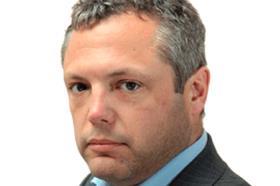The Law Society has taken a global lead by producing guidance for solicitors on how the ‘climate crisis’ will affect the profession and adapting to a rapidly changing landscape
The Law Society was inevitably going to attract some flak for being the world’s first professional body to publish guidance for members on climate change. But accusations of ‘wokery’ miss the point entirely. Solicitors who consider man-made global warming to be a Marxist hoax (and there will be some) are no less vulnerable to the ramifications of this issue for the reputation and financial vigour of their businesses.

The guidance, months in gestation, is certainly timely too. In March a row erupted at the bar after leading barristers signed a declaration saying they will not prosecute peaceful climate protesters or act for companies pursuing fossil fuel projects.
There is no equivalent of the ‘cab rank rule’ for solicitors, of course. But law firms are coming under ever closer scrutiny for their climate credentials – and not just by the environmental lobby. Last year, a group of Republican senators in the US wrote to more than 50 law firms warning them that their environmental, social and governance (ESG) practices could breach anti-trust laws by restricting the supply of fossil fuels.
The Impact of Climate Change on Solicitors follows Chancery Lane committing to a Climate Change Resolution in 2021. The resolution pledged to provide the profession with guidance on how to take climate change into consideration when providing legal services.
Law firms can refuse to act for polluters if the client’s activities inhibit progress toward net zero or otherwise conflict with the firm’s own ‘values’ on climate change, it confirms. But there is much more. Only a small minority of practices will have assessed the impact on staff of their own firm’s stance on climate change. Yet we know this is increasingly important for young lawyers and students choosing where to work. Some law firms will want to consider accommodating employees who identify a commitment to the climate as a ‘recognised philosophical belief’ – and therefore a protected characteristic – under the Equalities Act.
The note also addresses how to avoiding accusations of ‘greenwashing’, and how climate change physical and legal risks may be relevant to advice. It considers in details how climate change considerations affect professional duties, and what to evaluate when accepting client instructions.
‘Our climate change guidance does not say to solicitors they should not represent certain clients,’ stressed a Law Society spokesperson. ‘We recognise the importance of access to justice being available to everyone and that lawyers can play an important role in advising heavy-emitting clients to help them transition to net zero. This is critical if the government is to reach its legislative target of net zero by 2050.
‘Individual solicitors and firms can accept or decline to represent clients as a basic regulatory fact, and we present this neutrally to the profession as something they can consider in a climate change context.’
A relevant paragraph of the guidance reads: ‘Some solicitors may… choose to decline to advise on matters that are incompatible with the 1.5°C goal [of the 2016 Paris Agreement], or for clients actively working against that goal if it conflicts with their values or their law firm’s stated objectives. This is a matter for individual solicitors and law firms, recognising solicitors’ professional obligations.’
Lubna Shuja, Law Society president, said: ‘The effects of climate change – even on legal practices – are wide-ranging and are constantly evolving. Solicitors should be aware of this changing landscape and its potential impact upon their organisations, as well as on the legal advice they provide.’
The City of London Law Society welcomed the guidance as ‘a reference point for solicitors looking to understand the legal profession’s collective response’ to climate change. The guidance will be ‘of particular help to those practising in the most relevant areas and those looking to get more actively involved in that response’.
This article is now closed for comment.
































25 Readers' comments